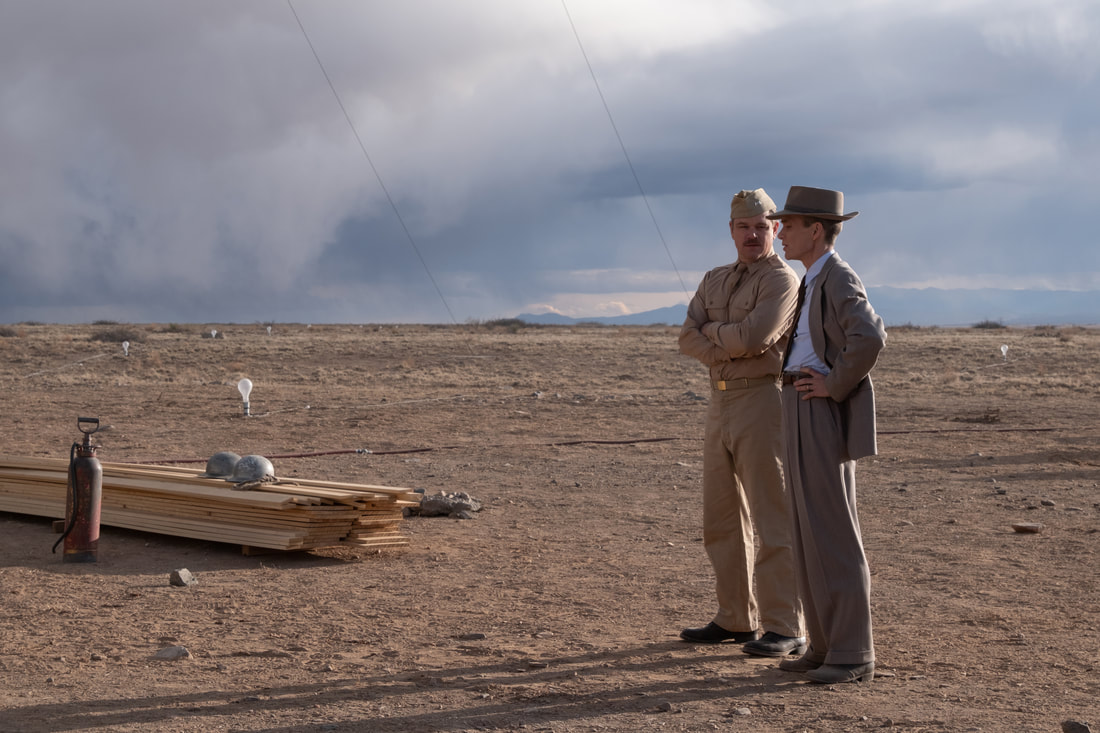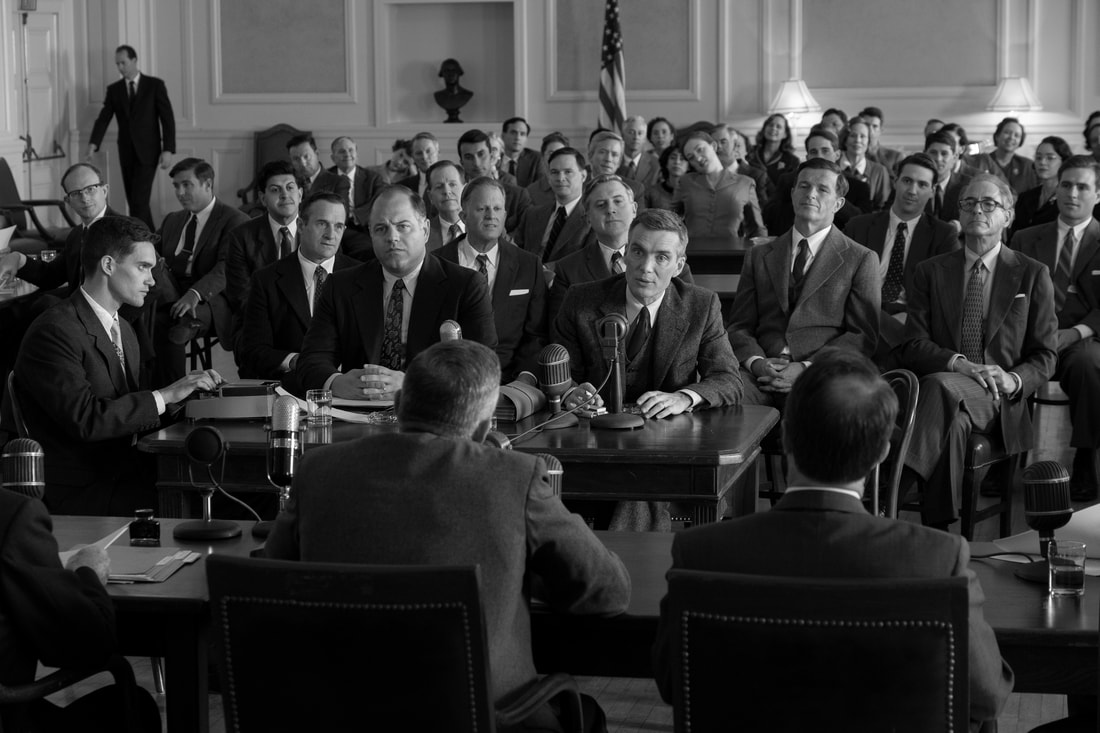|
Review by Camden Ferrell J. Robert Oppenheimer will go down in history as one of the most consequential people to ever live. His impact on humanity is immeasurable and still felt decades later. His story of ambition, innovation, and horror is one that deserves a strong and creative vision backing it, and this movie finds that in Christopher Nolan. After his most recent foray into the sci-fi thriller genre with Tenet, he is now back with his first ever biopic, Oppenheimer. Clocking in at three hours, this is a dense look at the American scientist that is brilliantly crafted, masterfully acted, and captivating in its execution. Often known as the “father of the atomic bomb”, Oppenheimer was a scientist that was pivotal in the Manhattan Project during World War II. This movie follows his journey in creating America’s first nuclear weapons as well as the fallout of said invention. Jumping between different periods and combining subjective and objective POV, this is a story that is essential to American history as well as human history as a whole. Based on the book, American Prometheus, this movie was written for the screen by Nolan and manages to explore new themes for the filmmaker while still retaining some of his signature style. Fans can expect some of Nolan’s classic banter, but this time paired with a more subdued examination of the complex feelings and events surrounding the Manhattan Project. There are times where the writing becomes a bit too indulgent for its own sake and slows the film down, but this is often corrected thanks to its sharp editing and the impeccable timing of the movie’s actors. Led by Cillian Murphy, who delivers an exquisite and haunting portrait of the deceased scientist, this might be the only Nolan film in which the acting far surpasses everything else happening on screen. In addition to Murphy, the movie has fantastic performances from both Matt Damon and Emily Blunt, the latter of whom has a handful of truly astonishing scenes. However, the one real standout to me was Robert Downey Jr. who portrays Lewis Strauss. His performance builds up gradually in a perfect crescendo before fully paying off in the film’s final hour. This may be the finest work of his career, and he is a dominant force from start to finish. For the fourth time in his career, Nolan has teamed up with cinematographer Hoyte Van Hoytema. He has been one of the greatest working cinematographers in recent years, and this remains true with Oppenheimer. Filmed in both subjective and objective styles (color for the former and black and white for the latter), this shows a new side to the cinematographer that hasn’t been seen before. It’s an almost indescribable quality that has changed with this movie, but it’s one that is deeply felt and appears beautifully on 70mm film.
Ludwig Göransson delivers yet another great score that heightens the experience of watching this movie. It’s a score that manages to capture the grandiose nature of what has been accomplished while still balancing that with the moral terror that follows. It’s a delicate dance that pairs wonderfully with Murphy’s performance and makes the film feel simultaneously larger than life yet deeply human. While there are many things working in the movie’s favor, it can also feel bogged down by its indulgence as mentioned before. Even with its brilliant and quick editing, the three-hour runtime still feels quite bloated. It’s not distracting in any way, but it gets so lost in the politics of its characters that it sometimes loses touch with humanity, that makes it so captivating. Oppenheimer is an impressive feat that deserves to be seen in theaters. It may not be among Nolan’s best (I’d argue that it’s in the bottom half of his filmography), but it is still a captivating endeavor that reminds us of why we love movies. This is Nolan’s Amadeus, and it’s a rewarding and informative journey for those who watch it. Oppenheimer is in theaters July 21. Rating: 4/5
0 Comments
Leave a Reply. |
Archives
July 2024
Authors
All
|
|
|
disappointment media
Dedicated to unique and diverse perspectives on cinema! |


